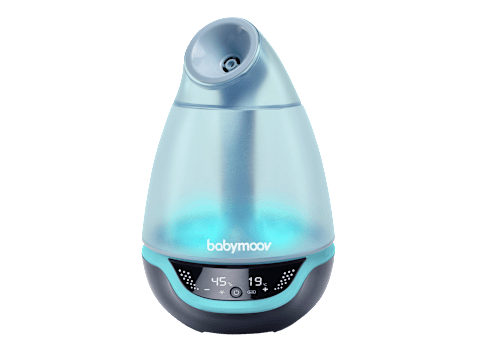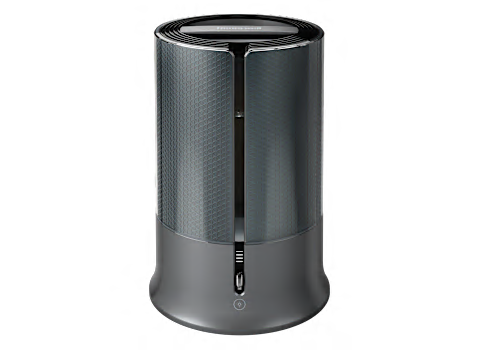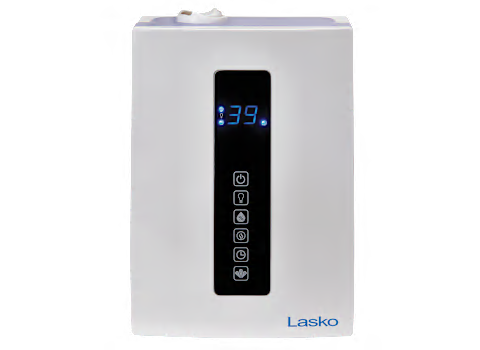Beyond Cold and Flu: Ease Winter Health Woes
What to do about arthritis, dry mouth, and other concerns that can worsen in the colder months

By Catherine Roberts
When it comes to winter health, infectious diseases like colds, flu, COVID-19, and more are likely top of mind right now as outbreaks occur across the country. But chilly weather means more than just cold and flu season: From your mouth to your feet, the cold can exacerbate existing health problems, too, making them more difficult to manage. Here are a few common chronic conditions that winter weather can worsen, and what you can do about them.
Asthma and COPD
Research suggests that respiratory problems, such as asthma and chronic obstructive pulmonary disease (COPD), can worsen when the temperature dips. For example, in a 2017 study, researchers found that former smokers with COPD had poorer lung function and needed a rescue inhaler more often in cold temperatures. “Cold and particularly dry air can irritate the upper airways and sinuses,” says Katie Drago, MD, assistant professor of medicine in the division of general internal medicine and geriatrics at Oregon Health & Science University in Portland.
What to do: Avoid the cold if you can. When you do need to be outside, Drago suggests wrapping a scarf around your neck and the bottom half of your face. This can help keep the air you’re breathing more humid and warm. She says that these days, a face mask can accomplish that goal. Using a humidifier inside, especially at night, can also help.
Arthritis
Studies have not yet fully explained why many people with osteoarthritis report that cold can trigger joint pain. There are a number of theories about this, according to Staja Booker, PhD, assistant professor in the college of nursing at the University of Florida in Gainesville.
It could be that people are less active in cold weather, which can increase pain. Or changes in air pressure could cause expansions and contractions of muscles and tissues inside the joints, which may put pressure on nerves and bones.
What to do: Plan ahead, Booker says. If there’s a cold front coming later in the week, get any strenuous household tasks out of the way beforehand. Plan to have heat wraps or warm compresses on hand for achy joints. You may want to avoid devices such as heating pads and electric blankets, Booker says, because they can get very hot and cause burns.
Staying active and sticking with an exercise routine is also key to keeping arthritis pain at bay. Indoor swimming or water aerobics can be especially helpful. Last, Booker recommends paying attention to your mood. “Chronic pain can cause mental health issues, but mental health issues can also in turn contribute to chronic pain,” she says. Stay connected to loved ones and engage in activities such as meditation, prayer, music, and games.
Dry Mouth
A common side effect of many medications is dry mouth, which can raise the risk of inflammation and cavities. Cold, dry air can make it worse.
What to do: Keeping air moist is important. In winter, when you’re heating your home, that can be tricky, so a humidifier can be a big help. And pay close attention to staying hydrated, with water or other nonalcoholic, noncaffeinated beverages. Over-the-counter saliva substitutes are available and may help, Drago says, but another option is simply to suck on a sour candy. These stimulate saliva production, and they come in sugar-free varieties.
Diabetic Neuropathy
Nerve damage from diabetic neuropathy can make it more difficult to feel and heal from wounds, especially on your feet. That means cuts or scratches can go unnoticed and untended. The cold, Drago says, can exacerbate this further. A scrape that doesn’t heal can progress to an ulcer or even lead to amputation.
What to do: Every day, carefully check your feet, and feel with your hands for any wounds or abrasions. Enlist the help of a loved one if you need to. If you find a cut or scrape, tell your primary care provider. If, after a few days, the wound doesn’t appear to be healing or gets larger, schedule an appointment and have your doctor take a look.
CR's Recommended Humidifiers
Check out these strong performers from CR’s tests of humidifiers.
Babymoov Hygro (+)

Honeywell HUL430B

Lasko UH300

Editor’s Note: A version of this article also appeared in the February 2021 issue of Consumer Reports On Health.
Consumer Reports is an independent, nonprofit organization that works side by side with consumers to create a fairer, safer, and healthier world. CR does not endorse products or services, and does not accept advertising. Copyright © 2022, Consumer Reports, Inc.